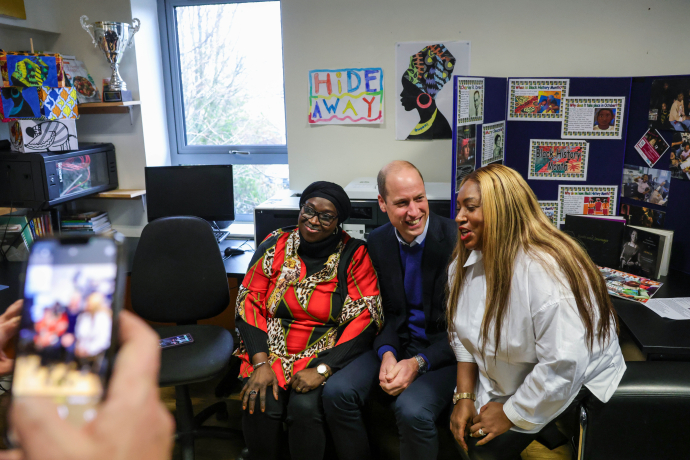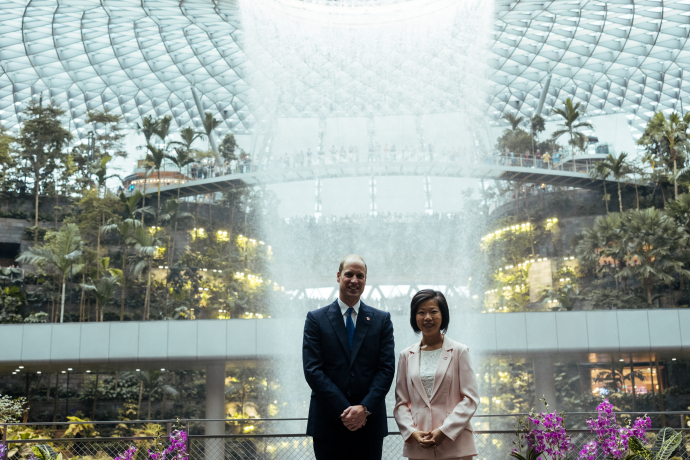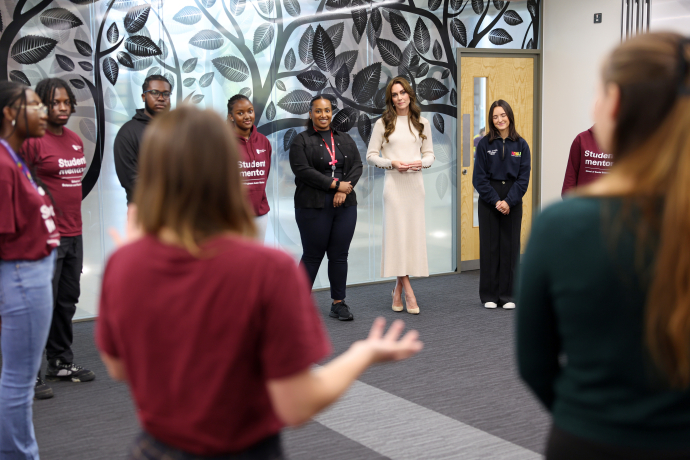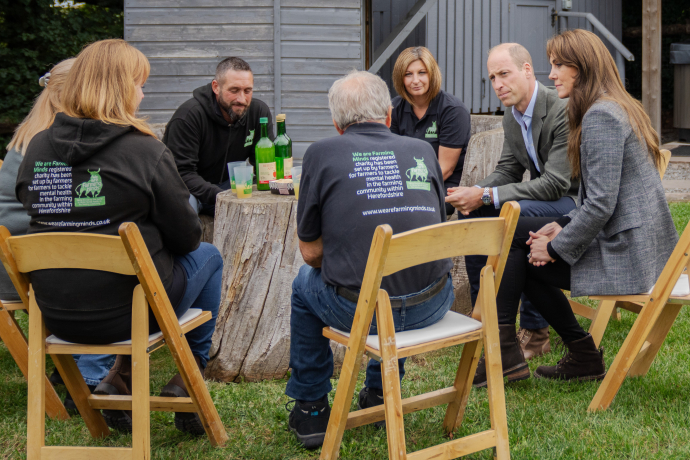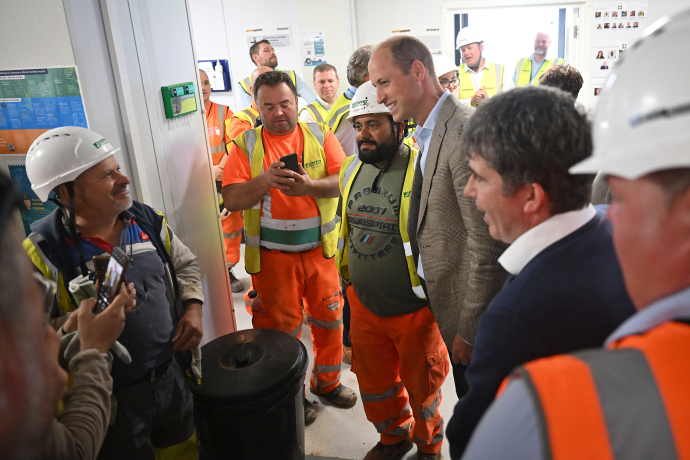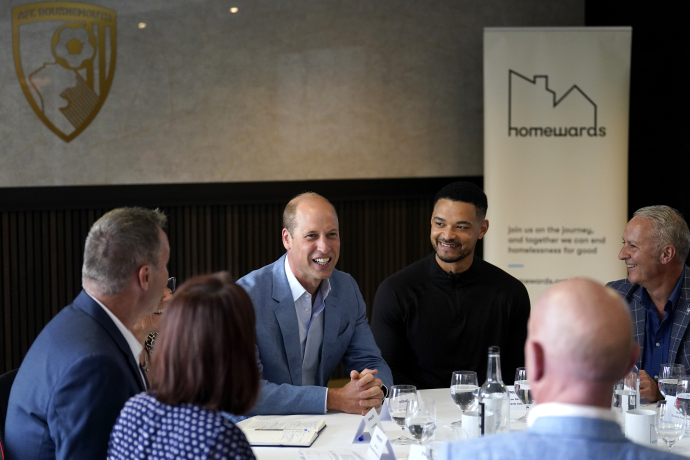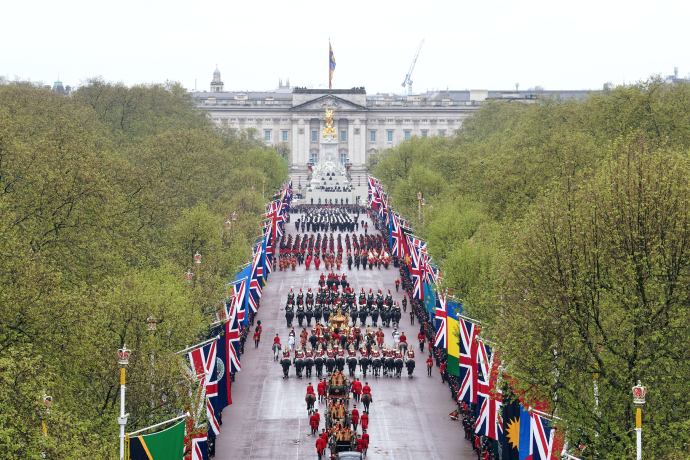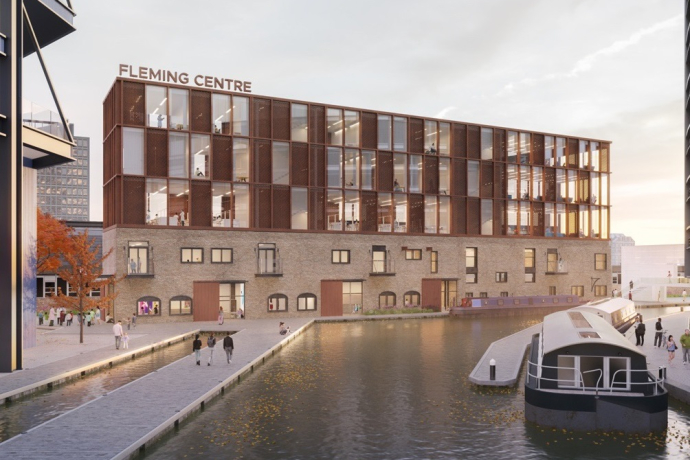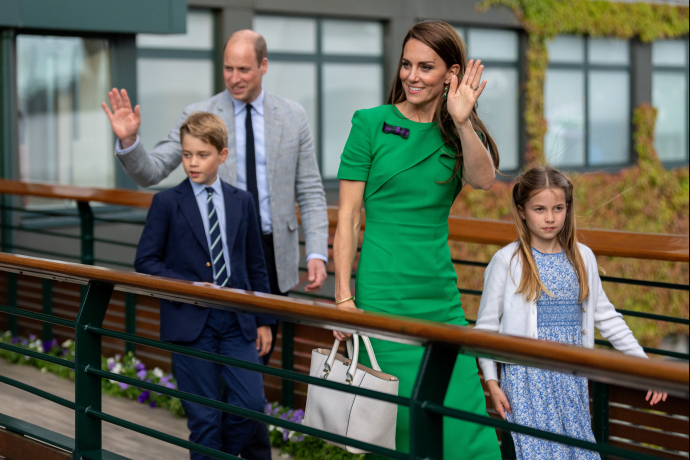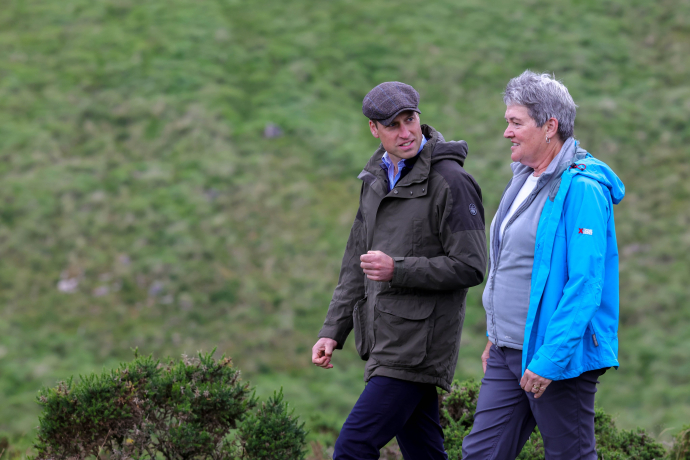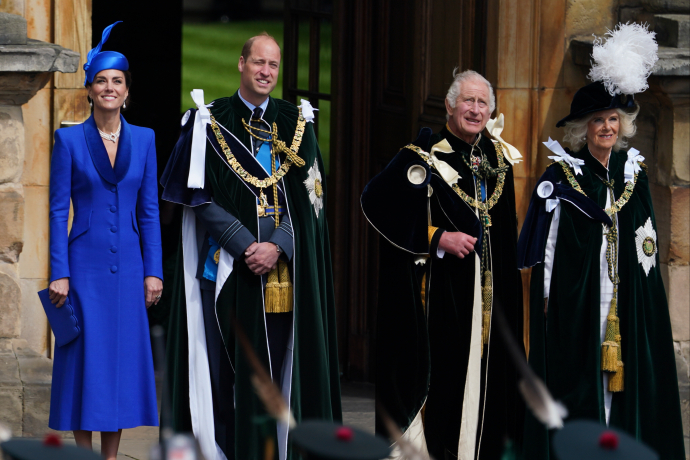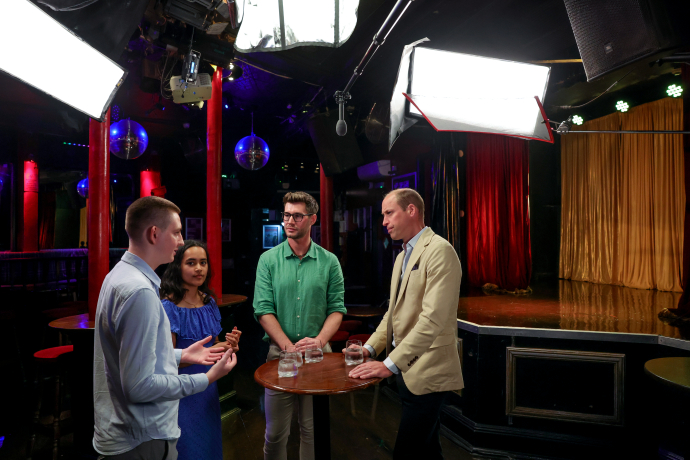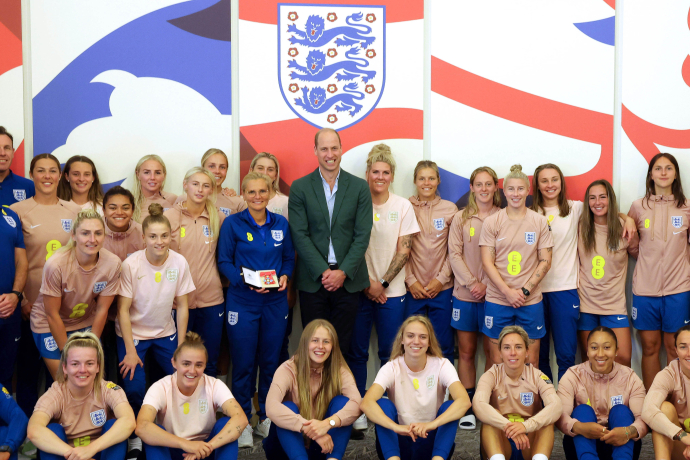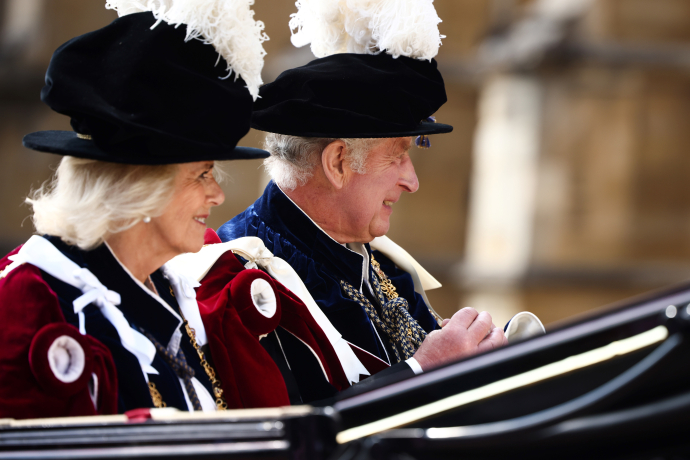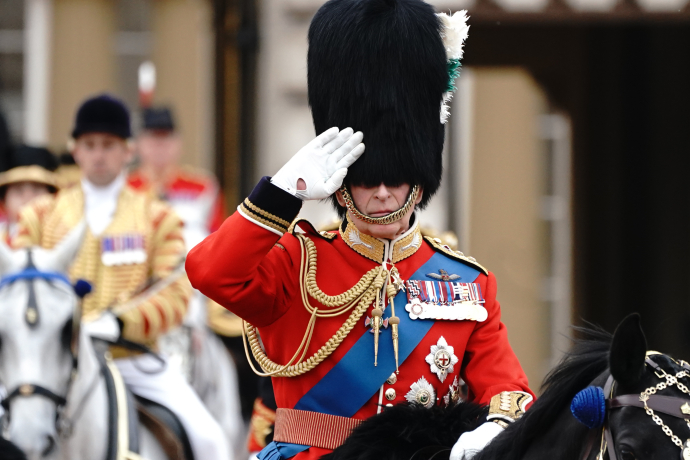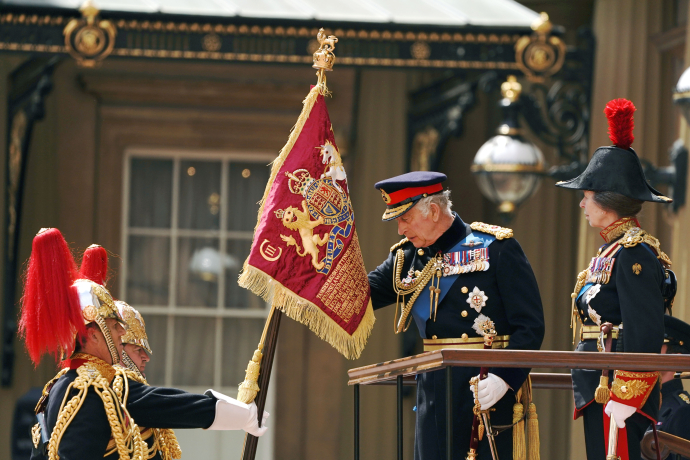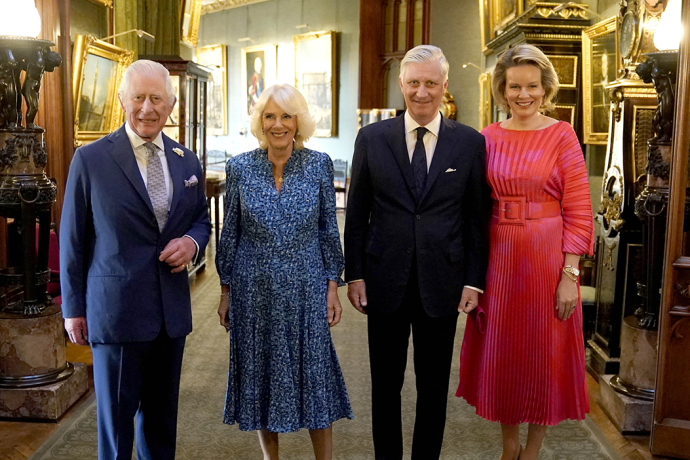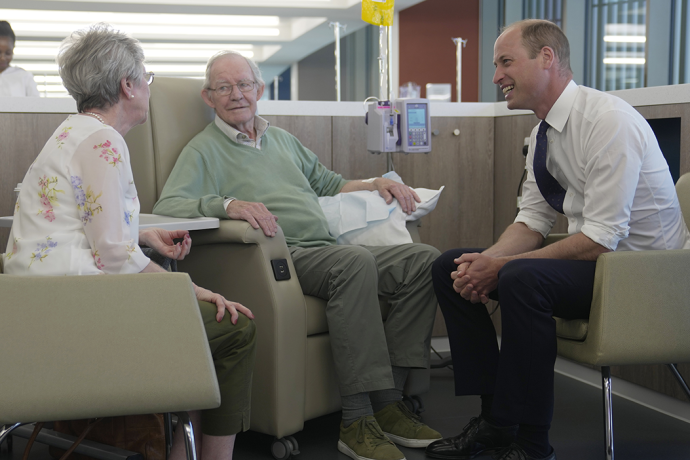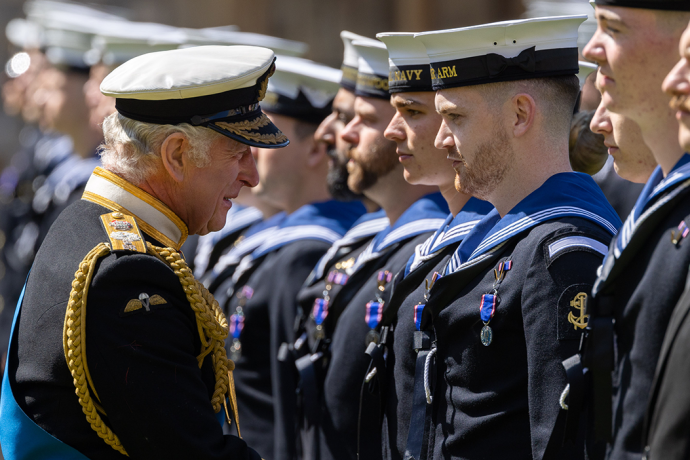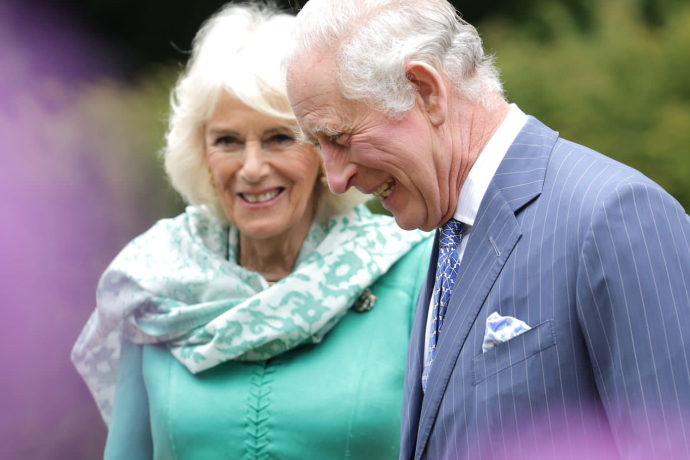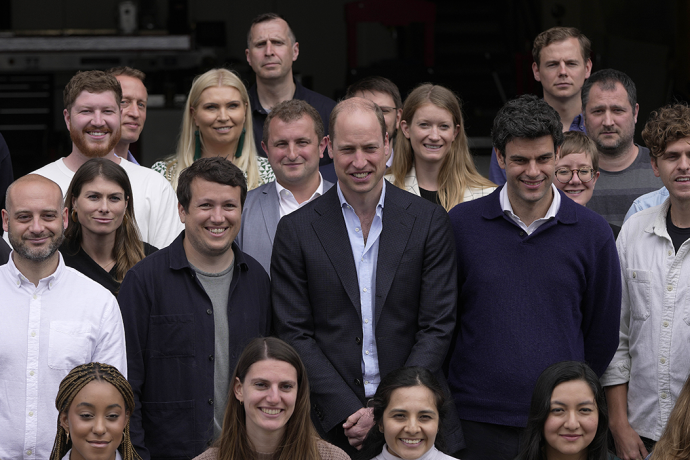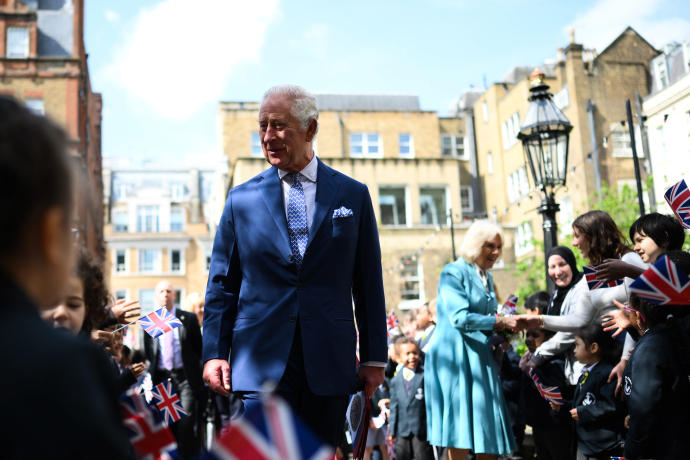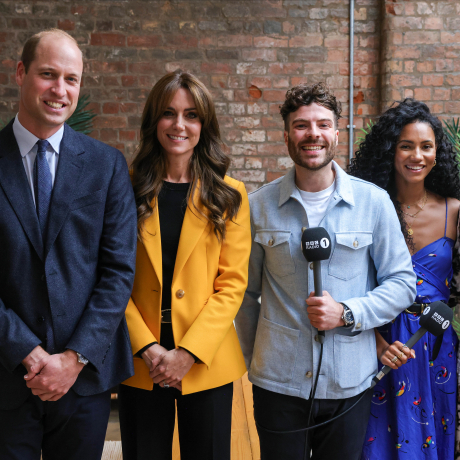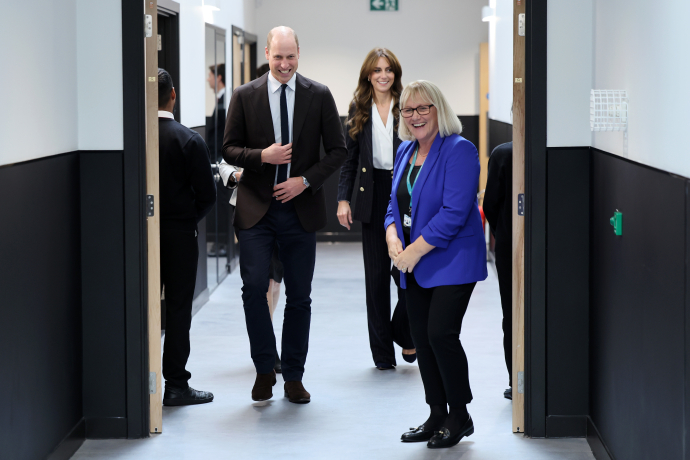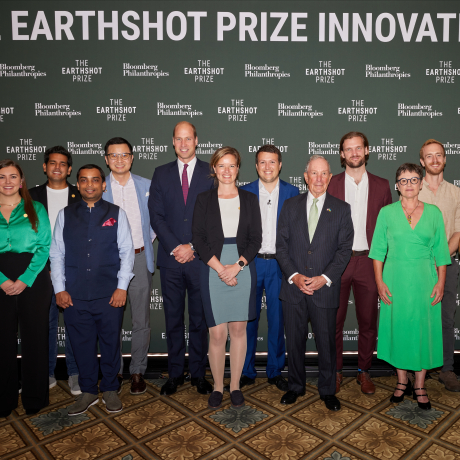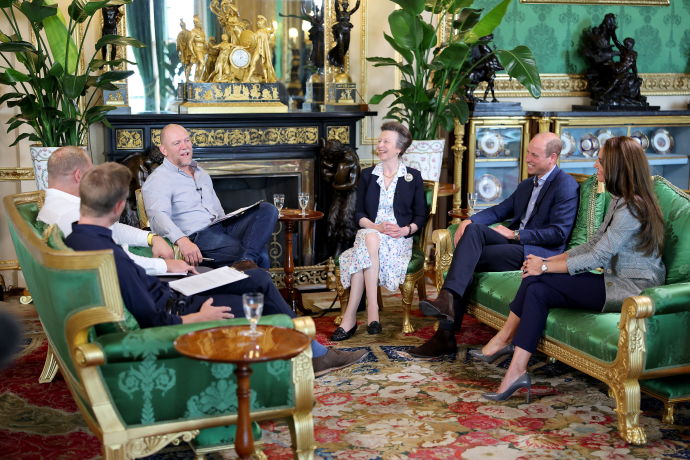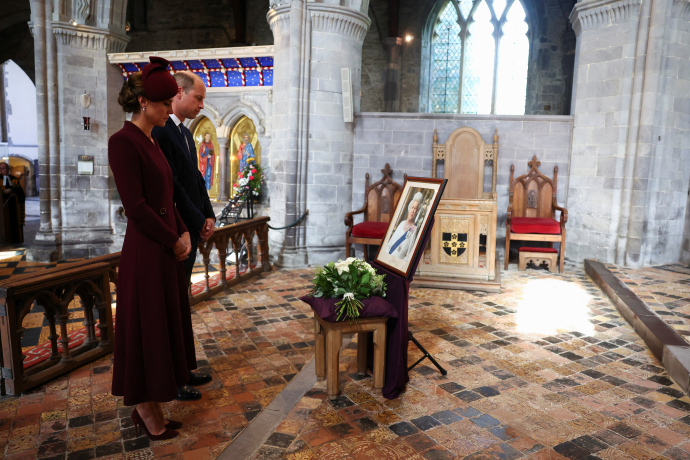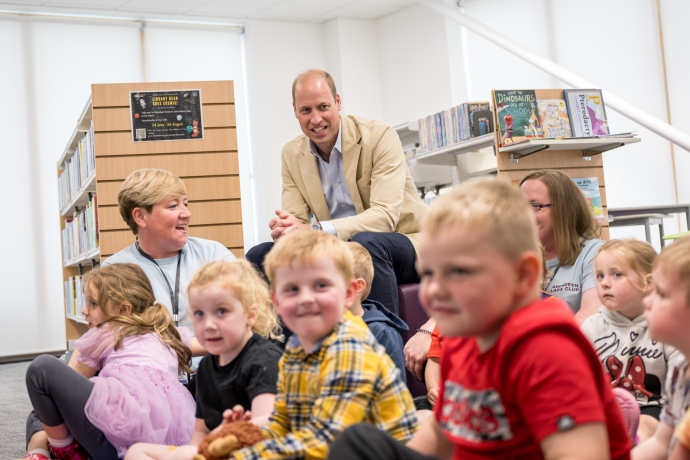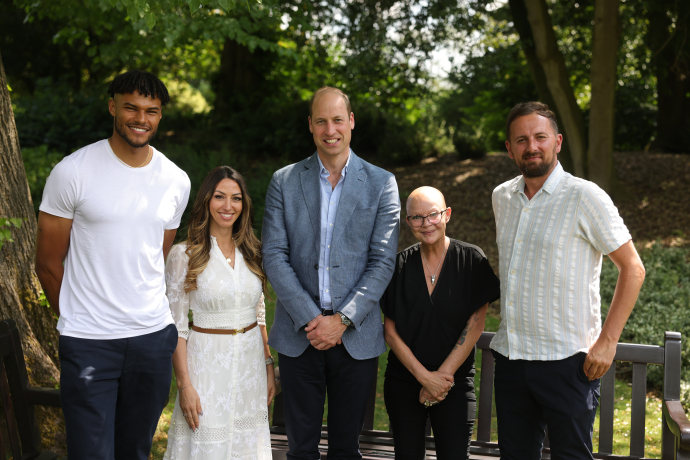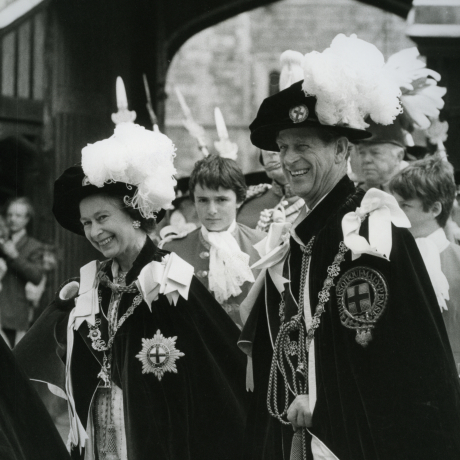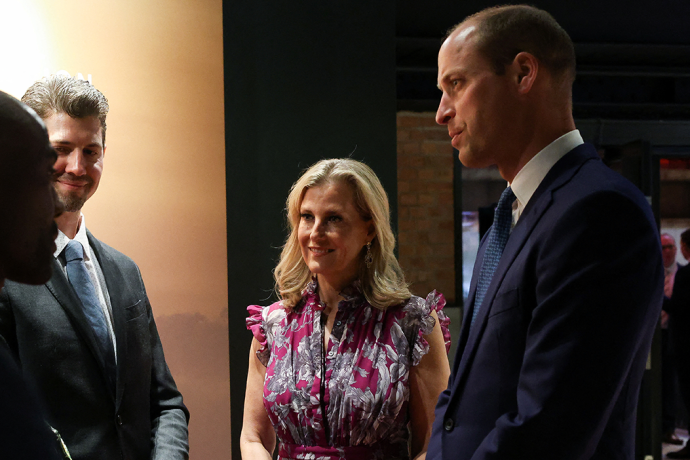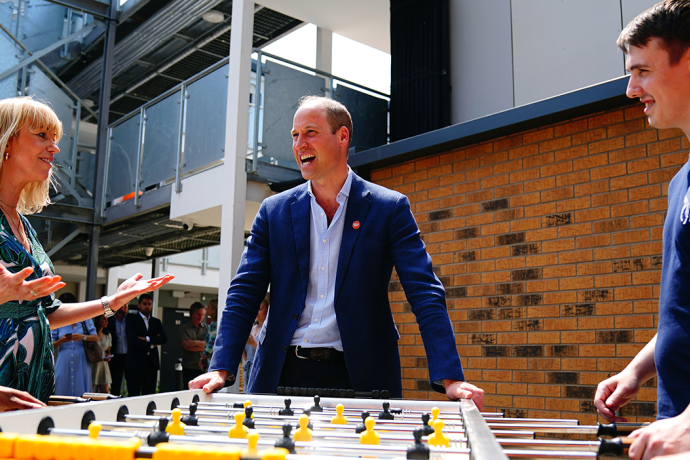A speech by The Duke of Cambridge at the Charity Commission Annual Public Meeting
Published
And thank you all for inviting me to address you today at your annual meeting. I am especially pleased to do so as supporting charities is at the heart of what I - and the whole Royal Family - do.
Thank you, William.
And thank you all for inviting me to address you today at your annual meeting.
I am especially pleased to do so as supporting charities is at the heart of what I - and the whole Royal Family - do. That said, as most of you will appreciate, no-one, not even me, says no to William Shawcross. So I had no choice anyway.
Addressing all of you is, I admit, somewhat daunting. There is an awful lot of goodness in this room! And to speak standing behind Michael Faraday’s desk is pretty intimidating. I could make a pun here about being sparky but I'll resist.
More to the point, where do you begin when you have a few minutes in which to speak but so much to say about charity - its central importance to a healthy society, what it means to me, the future of philanthropy, and so on.
As some of you who know me may attest, I am not short of an opinion or two, and there is no topic more guaranteed to see me wax lyrical than this - charity, what is it and why it matters.
So, I thought I’d start with something personal - a tribute to my parents. I have two children as you probably know (I gather it has been widely reported); and when I first became a father about four and half years ago, I began a process of thinking about the way I had been brought up, and the values that my parents had instilled in me.
As any parent will know, this process is not necessarily one that you undertake consciously - you find that certain values and habits, ones that you didn’t know you had, start bubbling up to the surface.
Some of my earliest memories relate to times that my parents spoke to me or - even better -showed me what it meant to have both privilege and responsibilities. I remember being taken by my mother to a homelessness shelter at a young age, her explaining to me why the people I met there matter; why no society can be healthy unless we take other people seriously.
From my father, I learned how central charity was to his life his sense of purpose. The Prince’s Trust is not an arms-length organisation for my father. He cares deeply about The Prince's Trust because it is a living projection of his values.
As a young child, I recall evening after evening my father's diligence and compassion as he applied himself to answering thousands of letters and reading endless reports in order to stay on top of his ambition to do all he could to help the underprivileged.
Without my realising it, what my parents were doing was instilling in me and Harry a lifelong habit to put charity at the heart of our lives.
My father, of course, had inherited this very same habit from his parents. My grandfather Prince Philip has been one of the most tireless public servants of this country, deeply committed to helping young people fulfil their potential.
My grandmother The Queen has never given a Christmas broadcast without paying tribute to charitable organisations, volunteers and people who care for others. My family have not done this because it looks good - they do it because charity is not an optional extra in society. We believe that, above anything else, charities nurture, repair, build and sustain our society. Without the work that charities do, society would be an empty shell.
It goes without saying that my family are not unique in this belief, and nor are these beliefs new. Charities have been actively supported by the Royal Family since at least the reign of George III. The generosity of the British people today - almost unsurpassed in the world - reveals a society that has embedded a commitment to charity at the heart of what binds us together. The giving of both time and money is instilled in children in this country as a habit at a young age. Some symbols of this attitude are very visible - the red poppy for remembrance, the AIDS ribbon, and so on. But these are the tip of the iceberg. Cake sales, fun runs, washing a neighbour's car for a donation, even simply having a monthly standing order – all largely unseen, but all priceless acts of charity.
But with this spirit of charity comes a responsibility on the part of those of you who channel the generosity into action. The charitable sector has to maintain the trust of those who support it, and it has to both balance continuity and embrace change.
In some respects, the challenges you face are not dissimilar to those faced by other age-old institutions such as the Monarchy, always seeking to ensure relevance and public service. The concept of trusteeship is not just a legal necessity - it invokes the idea of sound stewardship of values and institutions passing from one generation to the next. As a society, we imbue that stewardship with a great deal of importance. The health of our charities are the surest gauge of the health of our society. When charities are succeeding and adapting, we can afford to be optimistic about the future of our society.
When charities fail, for whatever reason - lack of money or a failure of governance – that also tells us something about the health of our nation, which we do well to note.
Why is it that this bond of trust we place in charities really matters? Why are charities such a bell-weather of societal well-being? I have a theory about this: we all know that society is becoming in lots of ways more atomised and polarised. There is no doubt that public debate seems coarser and more personal than ever, fuelled partly by anonymity online and the commercialisation of our news. We are running the risk of a silo society in which we allow differences of opinion to separate us.
In that context, it is more important than ever to nurture those institutions which transcend differences between us, which motivate us to put self-interest aside and which, explicitly, are beyond politics. Charities do this - in fact, they are the only on-the-ground infrastructure that we have in this country that does this.
From the micro level - village halls, youth clubs, churches - through to the macro level – national parks, institutions of learning and research – charities of all shapes and sizes have to be inclusive.
So, given your central importance, it’s vital that you succeed. And to succeed, you need to hold yourself open to account and to have critical friends. Some of the challenges you face are already well rehearsed. Finding more money in a shrinking pot is an existential threat to charities’ survival. Yet survive you must.
One of the ways that my brother and I approached this challenge many years ago was to encourage collaboration between charities. We want to support the charitable sector just as much as generations of our family before, but the model of how we do this will continue to evolve as much in the future as it has in the past.
To give you an example of that evolution, there are a number of sectors in which I have become closely involved and in which I am not Patron of one of the charities. United for Wildlife, the Taskforce the Prevention of Cyberbullying, Heads Together – all areas to which I am deeply committed, but not through particular attachment to one charity over and above others. My brother has followed a similar path in his work with charities supporting veterans.
Where we do have an official affiliation, as Patron or President, what all three of us have sought to do is to encourage greater collaboration and coordination between the charities with which we have official affiliations.
To be honest, in most cases, we have not had to encourage much. Creative and entrepreneurial charitable leaders have banded together in some of the unlikeliest ways to assist one another. Mountain rescue volunteers have accompanied young people from Centrepoint, Child Bereavement UK and WellChild for adventure days which both hone the Mountain Rescue volunteers’ skills and allow vulnerable but ambitious young people to broaden their horizons.
Bafta have provided everything from spaces for charities to fundraise to facilitating a day out with Paddington Bear for children from 17 other charities. There are countless other examples which our Charities Forum has engendered. Taking the logic of collaboration a step further, six years ago my brother, Catherine and I set up the Royal Foundation. This is not the time for me to explain the detailed rationale behind this organisation, suffice to say that we are very proud of the way that its programmes have all to date been built on the principle of working together.
Collaboration, convening, working in partnership - all are different ways of saying the same thing: we don’t have the answers but you do, and even more so when you work together.
The Royal Foundation’s Coach Core programme unites numerous different organisations working with sport and young people in cities across the UK to deliver life-changing training; Full Effect in Nottingham works with very small neighbourhood charities to reduce knife crime by taking the young people of St Ann’s Nottingham seriously; and Heads Together is a coalition of eight charities with numerous other partners to get this country talking about mental health.
I have been encouraged of late by examples of real willingness to work together elsewhere in the sector. The seven charities of varying size and clientele who, with the help of the Charity Commission, came together to support the victims of the Grenfell Tower fire. Their collaboration has undoubtedly done much to ease the unimaginable pain of that community.cIn a completely different way, the forthcoming merger of Bowel Cancer UK and Beating Bowel Cancer - two charities working to similar ends, and which are merging from a position of strength - is hugely worthy of praise. Together, I have no doubt that they will achieve more to fight bowel cancer together than they could have done on their own.
This leaves me to think that this approach could go further. Instead of setting up more individual charities working in the same fields, I wonder if we could do more to explore ways of combining forces, working and innovating together?
I do wonder at times if the compassion which leads people to set up or maintain charities could not be equally well directed at first finding opportunities to work with existing charities. Competition for funds between an ever-growing number of charities, and the confusion it can cause among donors, can lead to the silo-ing of expertise and, at worst, territorial behaviour.
I know that this message is not always easy to hear: charities exist because those who work and volunteer for them each believe passionately in its importance. And they are right to do so. But as the challenges of the future begin to bear down on us, I believe that this big shift must begin to happen – the sector must be open to collaborate, to share expertise and resources; to focus less on individual interests and more on the benefits that working together will bring. That, I believe, is where the future lies.
In all of this, it’s worth saying, of course, that the sector is not standing still in relation to its challenges, not least on account of the dedication of the Charity Commission. The Commission upholds the highest standards for the sector. Under William’s leadership, and with its highly professional and committed staff, the Charity Commission is not only a strong and trustworthy regulator but also a positive source of guidance. William, your successor has big shoes to fill.
To the whole charity sector I say this, thank you for what you do and for the excellence with which you do it. If I may, I would like to conclude on a high note. One of the most fun and enjoyable aspects of my work as I travel around the country is seeing your work – a great antidote to cynicism. If you lived your life on Twitter, or on news pages, you could be forgiven for assuming that society is falling apart: natural and manmade disasters, terrorism, economic uncertainty; our national institutions perhaps not appearing to be the bulwark they once were.
These challenges are all real, but they are not the whole story - in fact, they are not even half the story: kindness, compassion, neighbourliness, big and small acts of generosity form the glue of our society, and our links to other parts of the world. Charity facilitates and channels that generosity. The very word 'charity', which means care and has its roots in the doctrine of Christian love, points to the central humanity and importance of what you do. I cannot thank all of you in this room enough for it. We all in this country owe you a great deal for your service.
It is my firm belief that this country's charitable sector can collectively face the challenges of the future with great confidence because of the spirit of care which guides you.
I hope, for my part, that I can continue to be of service to you all in the years to come.
Thank you for your time, and I wish you a very productive morning together.
Related content

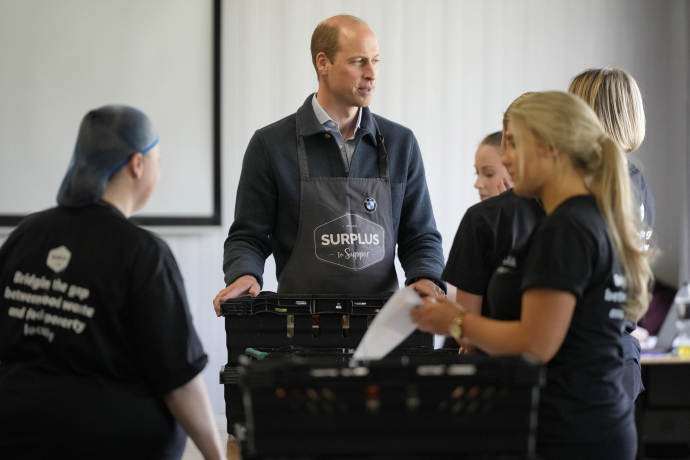
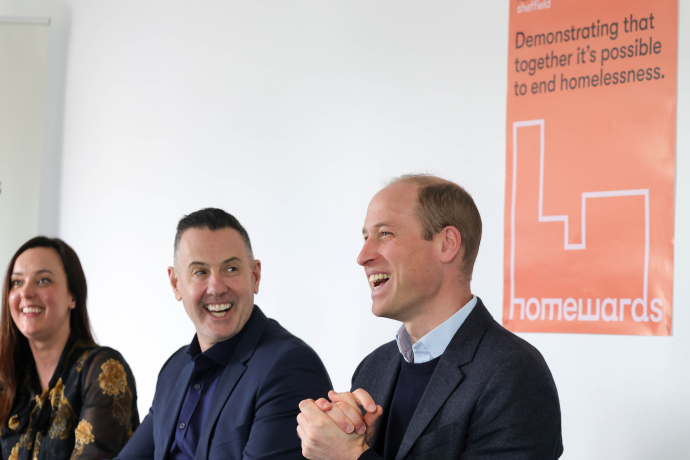
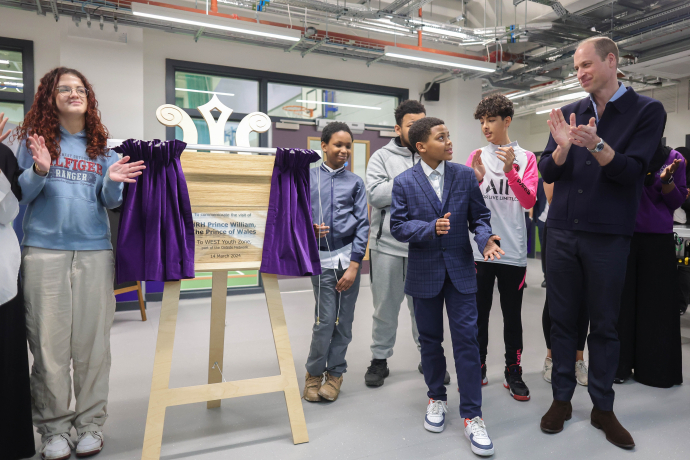
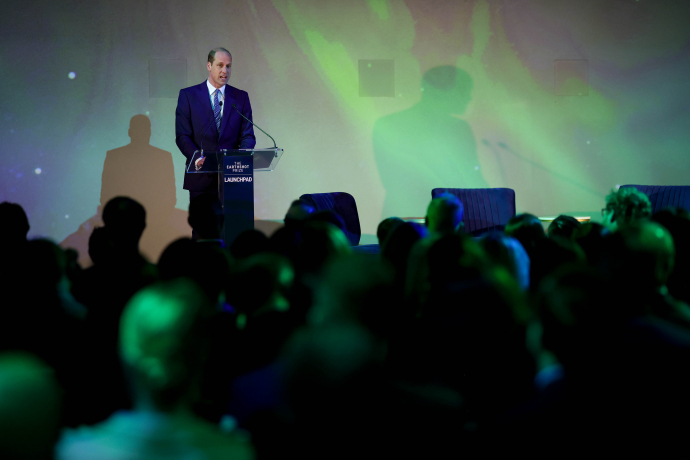


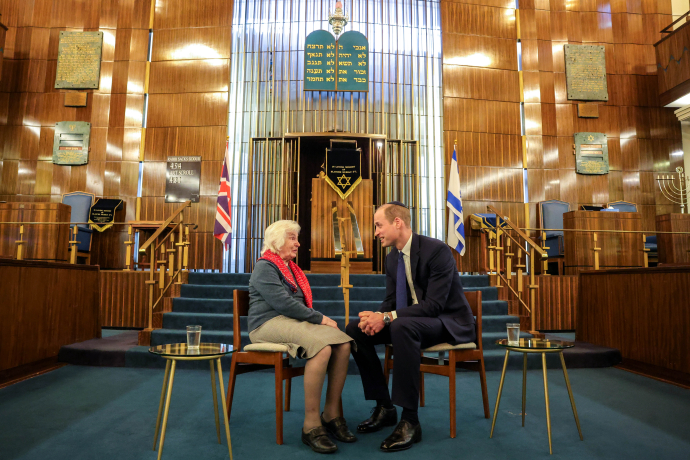
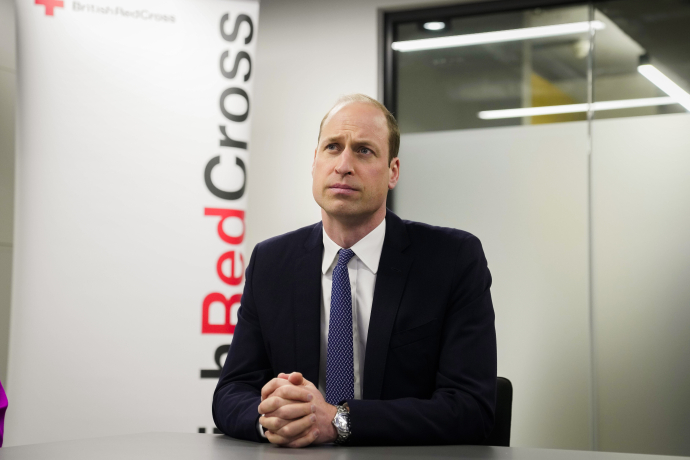
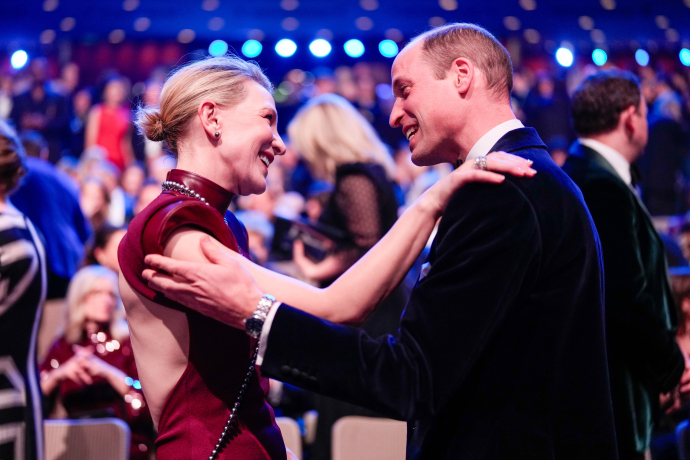
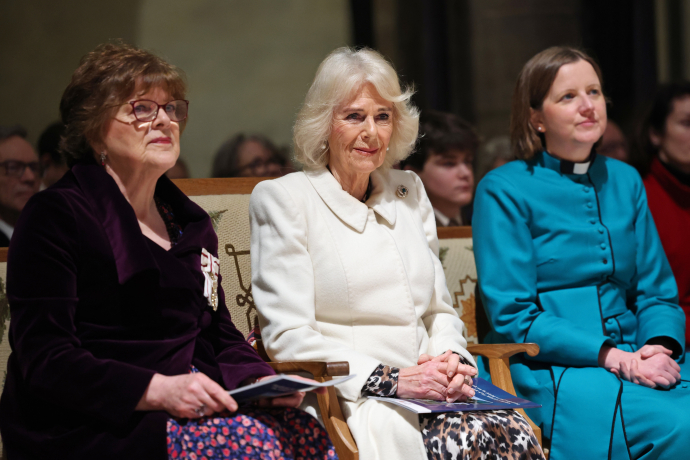
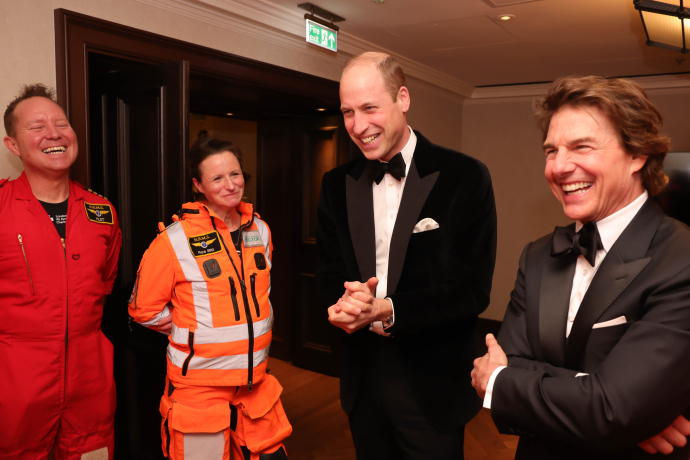
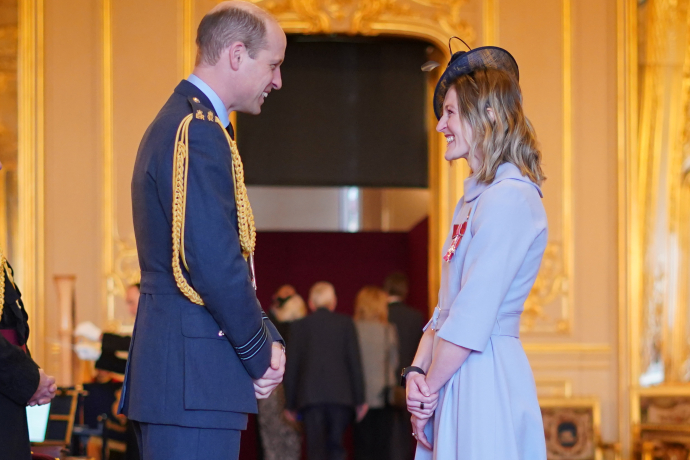
The Prince of Wales visits Manchester, launching latest Community Impact Project
16 November 2023